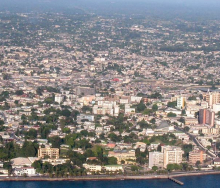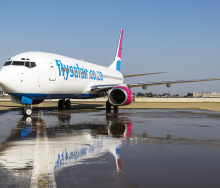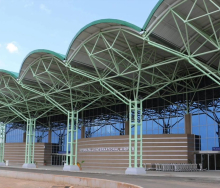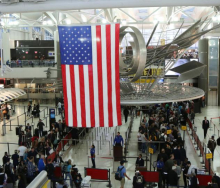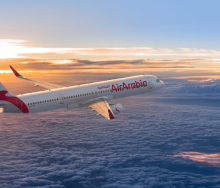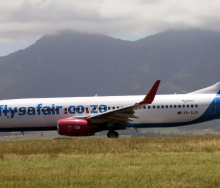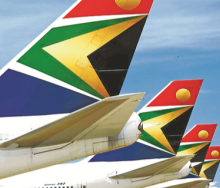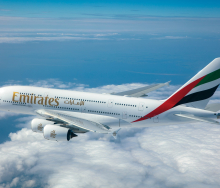Aviation industry leaders at COP28 UAE have pushed back against criticism of the sector’s carbon emissions, emphasising their commitment towards decarbonisation. They voiced the need for more support from governments and the private sector to achieve their nett-zero carbon goals.
The aviation industry accounts for about 3% of global greenhouse gas emissions. Despite this, the industry acknowledged its environmental impact and explained how it was working towards decarbonisation.
Industry executives called for financial aid to boost the production of sustainable aviation fuel (SAF), as Iata believes that SAF could contribute more than 60% of aviation’s emissions reduction required to meet the nett-zero by 2050 goals, however the industry is struggling to buy enough SAF to power flights.
SAF Production
Reuters reported earlier this year that Iata had called on the oil and gas sector and alternative fuel producers to increase their efforts in producing greener aviation fuels to enable airlines more access to these SAFs. And according to Reuters, Iata Chief Economist, Marie Owens Thomsen, said oil and gas capital budgets only invested 3% into SAF production.
Currently, SAF only makes up about 0,2% of global jet fuel used, about 500 000 metric tonnes, which is significantly lower than the sector expected based on Iata figures.
Additionally, SAF costs three to five times more than conventional kerosene.
Iata has called for change, stating that the burden of financial investment into SAF production could not fall solely on airlines. Thomsen estimated that airlines could end up spending US$2,4 billion (R45,8bn) to secure SAF in 2024, over and above their regular operational costs.
Support needed
At the Dubai COP28, industry executives called for supportive government policies to incentivise increased SAF production and diversify feedstock availability to reduce the cost of production, reports The National News.
"We need governments to take action to send the market signals to scale SAF alongside industry policy, with 40 countries with SAF policies in place or under discussion," said Yasar Yetiskin, Manager of SAF at global consultancy, ICF.
Criticism
Aviation has received a lot of criticism from both activists and potential collaborators regarding its path towards nett zero by 2050.
The summit itself was also exposed to a torrent of criticism as world leaders flocked to Dubai en masse in commercial aircraft and private jets on the opening day, causing congestion in air traffic in the area. About 15% of the traffic was made up of non-scheduled flights, reports The National News.
The aviation sector refuted accusations from climate activists about aviation’s lack of action towards reducing carbon emissions, claiming it was down to a failure in communicating to the world the steps being taken to reduce and offset emissions. Executives agreed that the industry’s sustainability efforts were not visible enough to the public.
"We have done so much but we're terrible at explaining it and announcing it to the world," said Jane Hupe, Chief of the Environmental Unit at the International Civil Aviation Organization (ICAO).
"Please let's do more outreach, let's talk about what aviation is doing. Let's make the world understand where we are, because we are so advanced and sometimes I hear people talking about things we resolved 15 years ago."
Collaboration is key
United Airlines reported on its progress towards reducing carbon and establishing a stable supply of SAF.
“Our transition to low carbon flying really relies on a whole system-wide approach to decarbonisation. We need other industries, in particular power, infrastructure and more, to enable us to decarbonise, because we need to use their solutions so that United can build a path forward,” said United’s Chief Sustainability Officer Lauren Riley.
United launched the Sustainable Flight Fund, in collaboration with partners such as Boeing, American Express Global Business Travel and other corporations, and will fund the start-ups working on SAF research, production and technology to make production more abundant and affordable.
Other airlines have also made deals with SAF producers with the hope of securing a supply during their transition towards greener flights.

